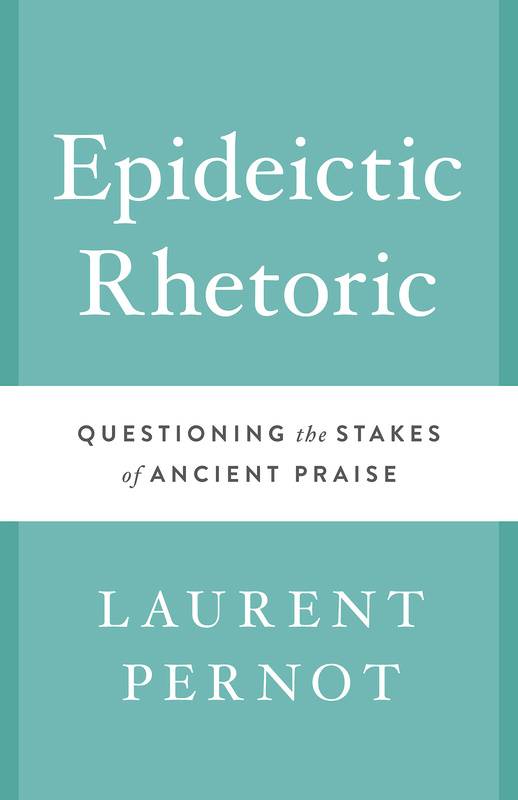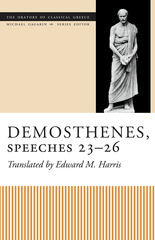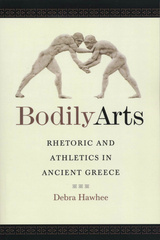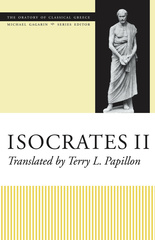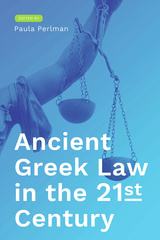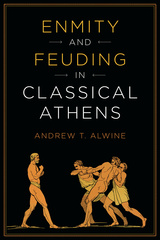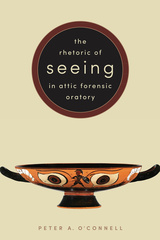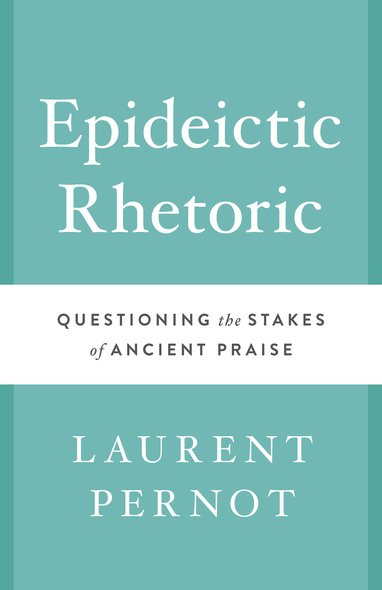
Epideictic Rhetoric
Questioning the Stakes of Ancient Praise
Speeches of praise and blame constituted a form of oratory put to brilliant and creative use in the classical Greek period (fifth to fourth century BC) and the Roman imperial period (first to fourth century AD), and they have influenced public speakers through all the succeeding ages. Yet unlike the other classical genres of rhetoric, epideictic rhetoric remains something of a mystery. It was the least important genre at the start of Greek oratory, but its role grew exponentially in subsequent periods, even though epideictic orations were not meant to elicit any action on the part of the listener, as judicial and deliberative speeches attempted to do. So why did the ancients value the oratory of praise so highly?
In Epideictic Rhetoric, Laurent Pernot offers an authoritative overview of the genre that surveys its history in ancient Greece and Rome, its technical aspects, and its social function. He begins by defining epideictic rhetoric and tracing its evolution from its first realizations in classical Greece to its eloquent triumph in the Greco-Roman world. No longer were speeches limited to tribunals, assemblies, and courts—they now involved ceremonies as well, which changed the political and social implications of public speaking. Pernot analyzes the techniques of praise, both as stipulated by theoreticians and as practiced by orators. He describes how epideictic rhetoric functioned to give shape to the representations and common beliefs of a group, render explicit and justify accepted values, and offer lessons on new values. Finally, Pernot incorporates current research about rhetoric into the analysis of praise.
[Pernot's] familiarity with a vast amount of material allows him to summarise, succinctly and elegantly, the evolution of epideictic rhetoric in theory and practice from its Athenian origins to the fall of Empire...[Pernot's] authority in the field of epideixis and his intimate knowledge of the texts make this short monograph a very useful addition to current scholarship.
The master has now written an excellent introduction to ancient epideictic, and I thoroughly recommend it.
The definitive work on the subject. . . . This short book presents a wealth of information about epideixis, both historical and theoretical.
An internationally recognized expert in ancient Greek rhetoric, Laurent Pernot presents here a compact and stimulating account of epideictic rhetoric: speeches of praise and blame. In four elegant chapters, the author distills a considerable depth and breadth of scholarship on a neglected area of rhetorical activity. Accessible and witty, the work offers simultaneously an introduction for newcomers and a critical intervention of interest to specialists across a range of disciplines.
Preface
Acknowledgments
A Note on Sources
1. The Unstoppable Rise of Epideictic
2. The Grammar of Praise
3. Why Epideictic Rhetoric?
4. New Approaches in Epideictic
Epilogue
Notes
Bibliography
Index

